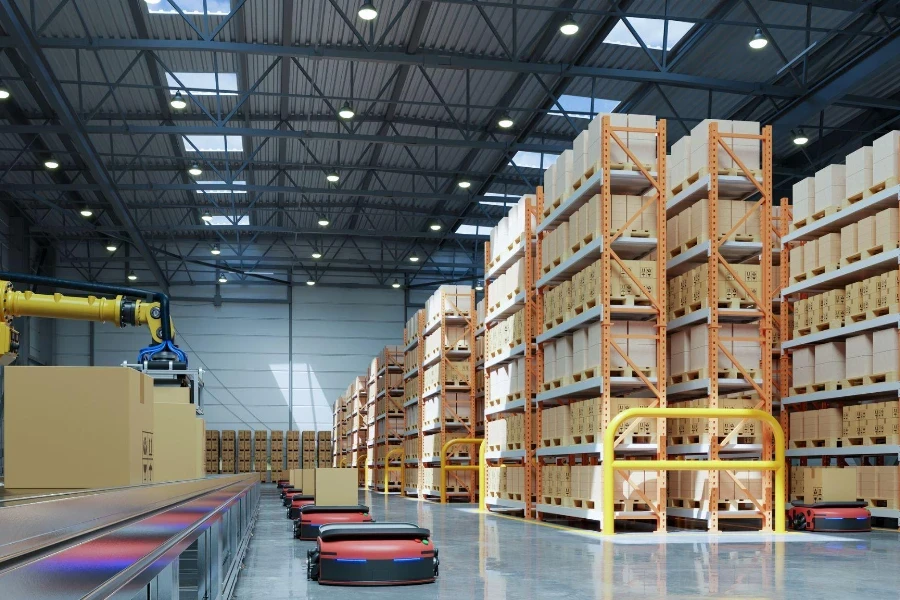The concept of wholesale might seem complex at first glance, but it’s an integral part of the global market that affects how products are priced, distributed, and sold. Whether you’re a budding entrepreneur, a small business owner, or simply curious, understanding wholesale can unlock new opportunities and insights. This article aims to demystify wholesale, breaking down its key components, and exploring how it operates within the broader economic landscape.
Table of Contents:
– What is wholesale?
– The benefits of buying wholesale
– How to find reliable wholesale suppliers
– The challenges of wholesale purchasing
– Future trends in wholesale
What is wholesale?

Wholesale is a term that describes the sale of goods in large quantities, typically to be resold by retailers rather than directly to consumers. This model benefits both manufacturers and retailers; manufacturers can move large volumes of products quickly, while retailers can purchase at lower prices due to the economies of scale. The essence of wholesale lies in its ability to bridge the gap between production and retail, ensuring that products find their way to store shelves and ultimately to consumers.
In the traditional sense, wholesale transactions often occur between businesses rather than individual consumers. These transactions can take place in physical wholesale markets or through online platforms that connect sellers with retailers globally. The digital age has transformed the wholesale landscape, making it more accessible and efficient for businesses of all sizes.
Understanding the dynamics of wholesale pricing is crucial. Prices are typically lower than retail because they exclude retail markup. However, the price can vary based on factors such as order volume, payment terms, and ongoing relationships between buyers and sellers. Negotiation is a common practice in the wholesale world, with both parties aiming to strike a deal that benefits their bottom line.
The benefits of buying wholesale

Purchasing goods wholesale offers a range of benefits for businesses. Firstly, it significantly reduces the cost per unit of stock, allowing businesses to enjoy higher profit margins when they sell products at retail prices. This is particularly advantageous for small businesses looking to maximize their financial resources.
Another key benefit is the ability to stock a wide variety of products. Wholesale purchases often come with minimum order quantities, but these can enable businesses to offer a broader selection to their customers. This diversity can enhance customer satisfaction and loyalty, as consumers appreciate having multiple options to choose from.
Lastly, buying wholesale can lead to stronger relationships with suppliers. Frequent interactions and negotiations pave the way for exclusive deals, better payment terms, and priority access to new products. These relationships are invaluable, providing businesses with a competitive edge in the market.
How to find reliable wholesale suppliers

Finding a reliable wholesale supplier is paramount to the success of any retail business. The first step is thorough research. Online directories, trade shows, and industry forums are excellent resources for discovering suppliers. It’s important to vet potential suppliers carefully, checking their reputation, product quality, and reliability.
Communication is key when assessing suppliers. Reach out with detailed inquiries about their products, minimum order requirements, and shipping logistics. This initial interaction can reveal a lot about the supplier’s customer service and responsiveness.
Don’t underestimate the power of references and reviews. Contacting existing or past customers of a supplier can provide insights into their experience, helping you make an informed decision. Remember, a good supplier is more than just a source of products; they are a partner in your business’s growth.
The challenges of wholesale purchasing

While wholesale purchasing offers numerous benefits, it also comes with its set of challenges. One of the primary concerns is the risk of overstocking. Purchasing large quantities of products requires careful demand forecasting and inventory management to avoid excess stock that can tie up capital and storage space.
Payment terms can also pose a challenge. Suppliers may require upfront payments or short payment terms, which can strain cash flow for small businesses. Negotiating favorable terms is crucial but requires a good understanding of your business’s financial health and negotiation skills.
Lastly, maintaining product quality can be challenging, especially when dealing with new suppliers. Regular quality checks and clear communication of expectations are essential to ensure that the products you receive meet your standards and those of your customers.
Future trends in wholesale

The wholesale industry is continuously evolving, driven by technological advancements and changing consumer behaviors. One significant trend is the rise of direct-to-consumer (DTC) models, which challenges traditional wholesale relationships. However, this also opens opportunities for wholesalers to diversify their services and add value in new ways.
E-commerce is another area of growth, with online wholesale marketplaces becoming increasingly popular. These platforms offer greater accessibility and convenience for both suppliers and buyers, streamlining transactions and expanding reach.
Sustainability is also becoming a priority, with more businesses seeking eco-friendly products and practices. This shift is influencing how wholesalers source and distribute products, pushing the industry toward more sustainable and ethical practices.
Conclusion:
Wholesale is a foundational element of the global market, offering benefits and opportunities for businesses of all sizes. Understanding how to navigate the world of wholesale, from finding reliable suppliers to managing inventory, is crucial for success. As the industry evolves, staying informed and adaptable will be key to leveraging wholesale for business growth.




